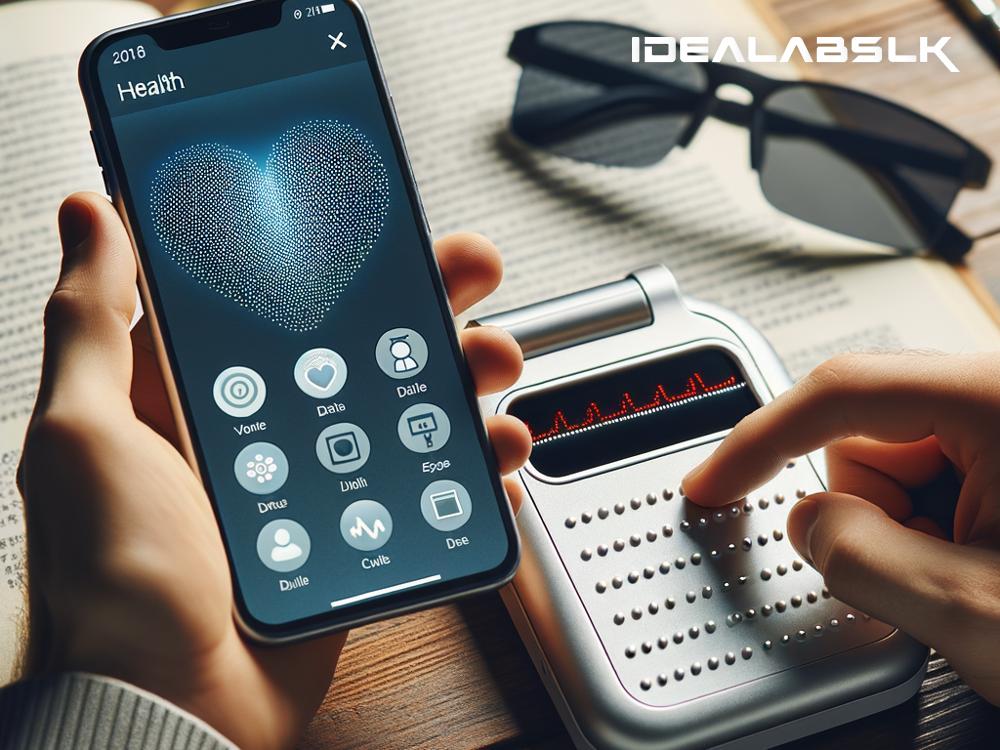Technology has always been a game-changer, and when it comes to healthcare, it's proving to be a lifeline for people with disabilities. Imagine a world where your disability doesn't limit your access to healthcare. Thanks to innovative assistive technologies, that world is becoming a reality. In this article, we'll explore some of the amazing ways technology is helping people with disabilities access healthcare more easily and effectively.
Telemedicine: Healthcare at Your Fingertips
Gone are the days when going to the doctor's office was the only option. With the advent of telemedicine, medical consultations can now happen through a video call. For those with mobility challenges, this means no more struggling to get to medical appointments. Whether it's a routine check-up or a session with a specialist, telemedicine brings healthcare to the homes of those who need it most. It's not just convenient; it's a game-changer for people with disabilities.
Wearable Devices: Keeping an Eye on Health
Wearable technology is not just for fitness enthusiasts. For people with disabilities, wearable devices are like having a personal health assistant. For instance, smartwatches can monitor heart rate, track sleep patterns, and even detect falls, sending alerts to caregivers or family members. For people with conditions that require constant monitoring, these devices offer peace of mind and a new level of independence.
Accessibility Features in Smart Devices
Smartphones and tablets have become essential tools in our daily lives, and they're also playing a significant role in making healthcare accessible. iOS and Android devices come loaded with features designed to assist users with disabilities. Voice commands, screen readers, and magnification gestures help users navigate apps effortlessly. Many health apps are designed with accessibility in mind, ensuring that booking appointments, accessing medical records, or even just reading health tips can be done with ease.
Speech-to-Text and Text-to-Speech Services
Communication is key in healthcare, and for individuals who are deaf, hard of hearing, or have speech impairments, technology is breaking down barriers. Speech-to-text services convert spoken words into written text, making conversations with healthcare providers more accessible. Conversely, text-to-speech services can help those unable to speak by turning typed text into spoken word. These innovations are not just about facilitating communication; they're about ensuring that everyone has a voice when it comes to their health.
Customized Prosthetics and Orthotics through 3D Printing
The field of prosthetics has seen revolutionary changes thanks to 3D printing. Gone are the days of one-size-fits-all prosthetic limbs. Now, each device can be custom-tailored to fit the user's exact specifications, improving comfort and usability. Similarly, orthotic devices for supporting limbs or the spine can be made lightweight and more effective, significantly enhancing the quality of life for individuals with physical disabilities.
Virtual Reality for Physical and Cognitive Rehabilitation
Virtual reality (VR) is not just for gaming. In healthcare, VR technology is being used for physical and cognitive rehabilitation. For people recovering from strokes or injuries, VR can simulate real-world environments for them to practice movements and cognitive functions in a safe, controlled setting. This immersive technology offers a fun and engaging way for individuals to undergo therapy, which can lead to better outcomes.
Smart Home Technology for Independent Living
Smart home technology can turn a living space into a supportive environment for people with disabilities. Voice-activated systems can control lights, lock doors, or adjust thermostats, reducing the need for physical interactions. For those with limited mobility, smart home devices can provide a new level of autonomy and empower them to live independently.
The Road Ahead
The innovations in assistive technology we've discussed are just the tip of the iceberg. As technology continues to evolve, the potential to transform healthcare for people with disabilities grows. These developments are not just about building a more inclusive society; they're about recognizing the rights of every individual to access quality healthcare.
In a world where technology and compassion intersect, the barriers faced by people with disabilities are steadily being dismantled. This progress not only empowers individuals but also enriches our communities. As we continue to embrace and support these innovations, we're moving closer to a future where healthcare is truly accessible to all.

